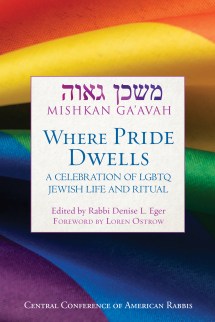
While we anticipate—and work to fight—the disastrous consequences resulting from the U.S. Supreme Court’s plan to drastically curtail reproductive rights in the United States, we can take a lesson in leadership and courage from the 1960s and two New York City CCAR members—Rabbi Lewis Bogage and Rabbi Israel Margolies, z”l—who were instrumental in forming the Clergy Consultation Service on Abortion before the 1973 passing of Roe v. Wade.
Abortion was against the law in New York State when Rev. Finley Schaef approached Rev. Howard Moody, both serving churches in downtown Manhattan. Rev. Schaef, haunted by the memory of being unable to help a woman seeking an abortion for her daughter who became pregnant under tragic circumstances, suggested that the two of them organize clergy to refer people for safe and affordable abortions. Rev. Moody welcomed the idea and the two called a meeting with other clergy and legal advisors to form the Clergy Consultation Service on Abortion, a network of religious leaders organized to refer women for safe and affordable care.
The group devoted many hours to planning and arranging the details. They attained a direct-dial telephone number and housed an answering machine at Rev. Moody’s church. They charged no fee. To ensure their doctors were trustworthy and not overcharging, the administrator of Judson Church, Arlene Carmen, pretended to be a pregnant woman and checked them out. If questioned by the police, they would claim that the referrals were part of confidential pastoral counsel. And they were committed to using the word “abortion” in the name of their consultation service so that people knew what they were doing, would be able to find them, and hopefully reduce the stigma so often associated with abortion. And they enlisted the participation of other Greater New York City clergy, including Rabbi Bogage and Rabbi Margulies.
Finally, on May 22, 1967, a New York Times front-page article announced the formation of the Clergy Consultation Service on Abortion, listing twenty-one clergy—nineteen ministers, plus Rabbi Bogage and Rabbi Margolies. The article described the goals and work of the CCSA, listed each clergy member by name and congregation, included the call number, and quoted from the CCSA statement which underscored that a doctor performing an abortion is “living by the highest standards of religion and of the Hippocratic Oath.”
The calls and referrals started immediately, reaching 800 by the end of 1967, 3,000 in 1968, and 10,000 in 1969. According to estimates, by the time of the Roe decision, the network expanded nationally to 2,000 clergy serving 100,000 women without a single fatality. There were a few clergy arrests and legal inquires, but nothing ever came of it all, and with the Roe decision, many of the clergy turned to other social justice needs.
Sources:
Tom Davis, Sacred Work, Rutgers University Press, 126–135.
Doris Andrea Dirks and Patricia A. Relf, To Offer Compassion, University of Wisconsin Press, 23–32.
Dennis S. Ross, All Politics Is Religious, SkyLight Paths, 25–31.
Rabbi Dennis S. Ross directs Concerned Clergy for Choice for Planned Parenthood Empire State Acts, is Acting Interim Specialist for the CCAR, and author of A Year with Martin Buber: Reflections on the Weekly Torah Portion for the Jewish Publication Society Daily Inspiration Series.


















